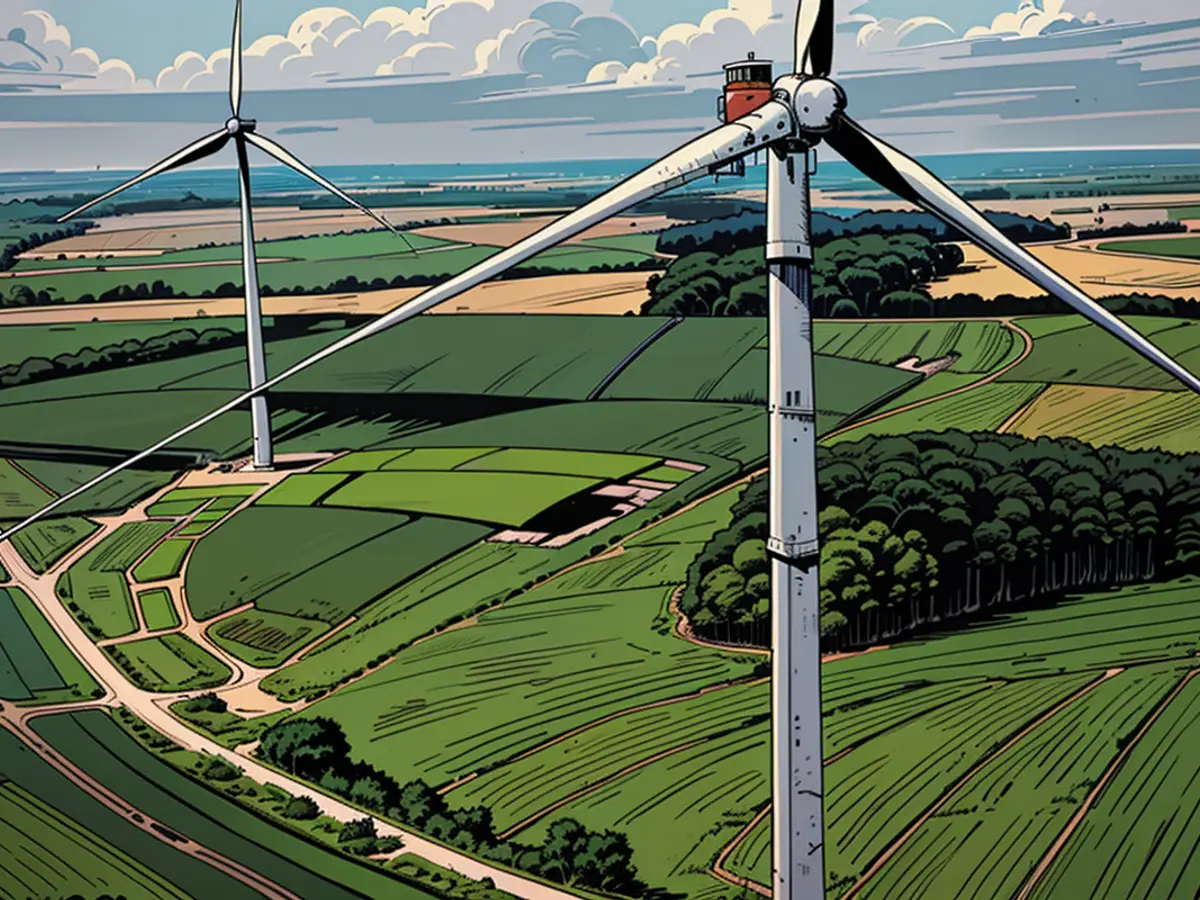- The law on citizens' participation in MV is hardly used for wind farms
Despite very low interest rates on savings, few people in Mecklenburg-Vorpommern have taken advantage of the Citizens' Participation Act and invested their money in wind farms in anticipation of higher returns. As revealed in the answer from the state government to a minor request from the AfD parliamentary group, only 30 natural persons acquired shares in wind turbines in 2020. Municipalities also made less use of the participation opportunities than expected. Participation by nine municipalities in two wind farms in the years 2020 and 2024 is listed.
Mecklenburg-Vorpommern first state with participation law
In 2016, Mecklenburg-Vorpommern became the first federal state to grant residents of wind farms and affected communities a legal claim to participation or adequate compensation. The aim was to keep more of the economic success of wind turbines in the region and thus also increase acceptance of wind turbines.
According to the law, investors and project carriers must offer municipalities and their residents within a five-kilometer radius of wind farms 20 percent of the shares for purchase. Alternatively, compensation payments to municipalities or secured savings for citizens are possible.
Expectations not met
"Only two parks were participated in by municipalities. Alternatives for economic participation were hardly offered," said AfD member of parliament Martin Schmidt. In only three cases were compensation payments made, and in a further three cases savings products were offered. The annual compensation payments to nine affected communities ranged from 255.49 euros to 1,269.47 euros.
According to the state government, the Citizens' and Municipal Participation Act does not provide for comprehensive reporting obligations for project carriers. Since a final notification of the acceptance of the participation offer is not mandatory, there are no final data on the implemented participations. However, the Ministry of Energy in Schwerin has already admitted that the law did not have the hoped-for effect and announced a revision.
Wind power expansion stagnates in MV
In the first half of 2024, only seven new wind turbines were built in the northeast, according to industry figures. This means a decrease compared to the already weak previous year, when 12 new wind turbines were installed in the state. Upon taking office in 2021, the red-red state government announced that it would bring more momentum to the construction of new wind farms. This did not succeed - for example because approval procedures take a long time.
Currently, 1,859 wind turbines generate electricity in Mecklenburg-Vorpommern. In neighboring Schleswig-Holstein, there are 3,238. The installed capacity there is 522 kilowatts per square kilometer, which is about three times as high as in MV. Acceptance of renewable energy production is higher in Schleswig-Holstein. A significant reason for this is that the operators of the wind farms usually come from the region and thus the revenue remains in the country. In Mecklenburg-Vorpommern, foreign investors have often been involved in the past.
The AfD parliamentary group expressed concerns about the low participation in wind farms by municipalities and residents, as revealed in their request to the state government. Despite Mecklenburg-Vorpommern becoming the first state to implement a law enabling participation or compensation, only 30 individuals and nine municipalities participated in wind farm investments in 2020 and 2024 respectively.








